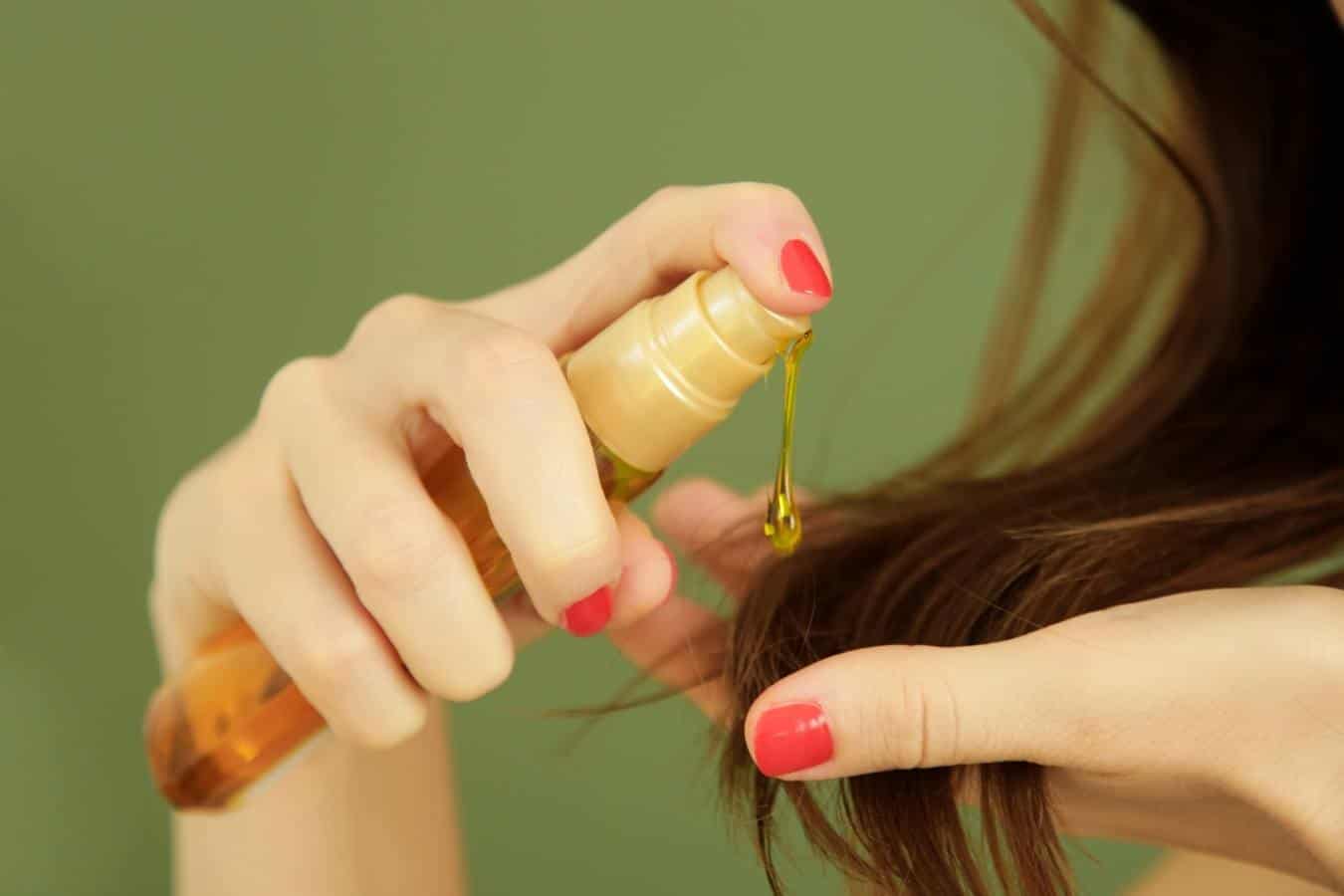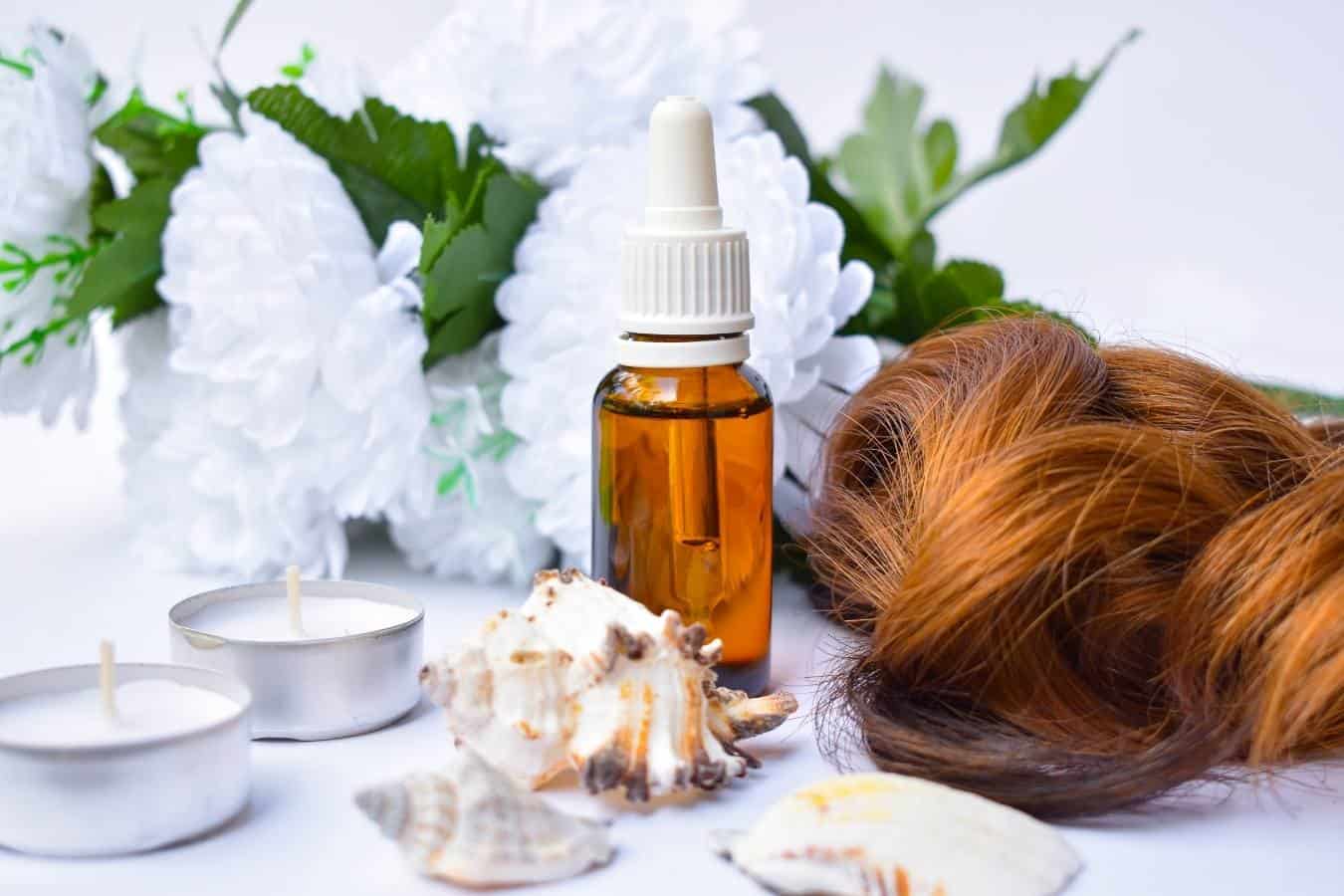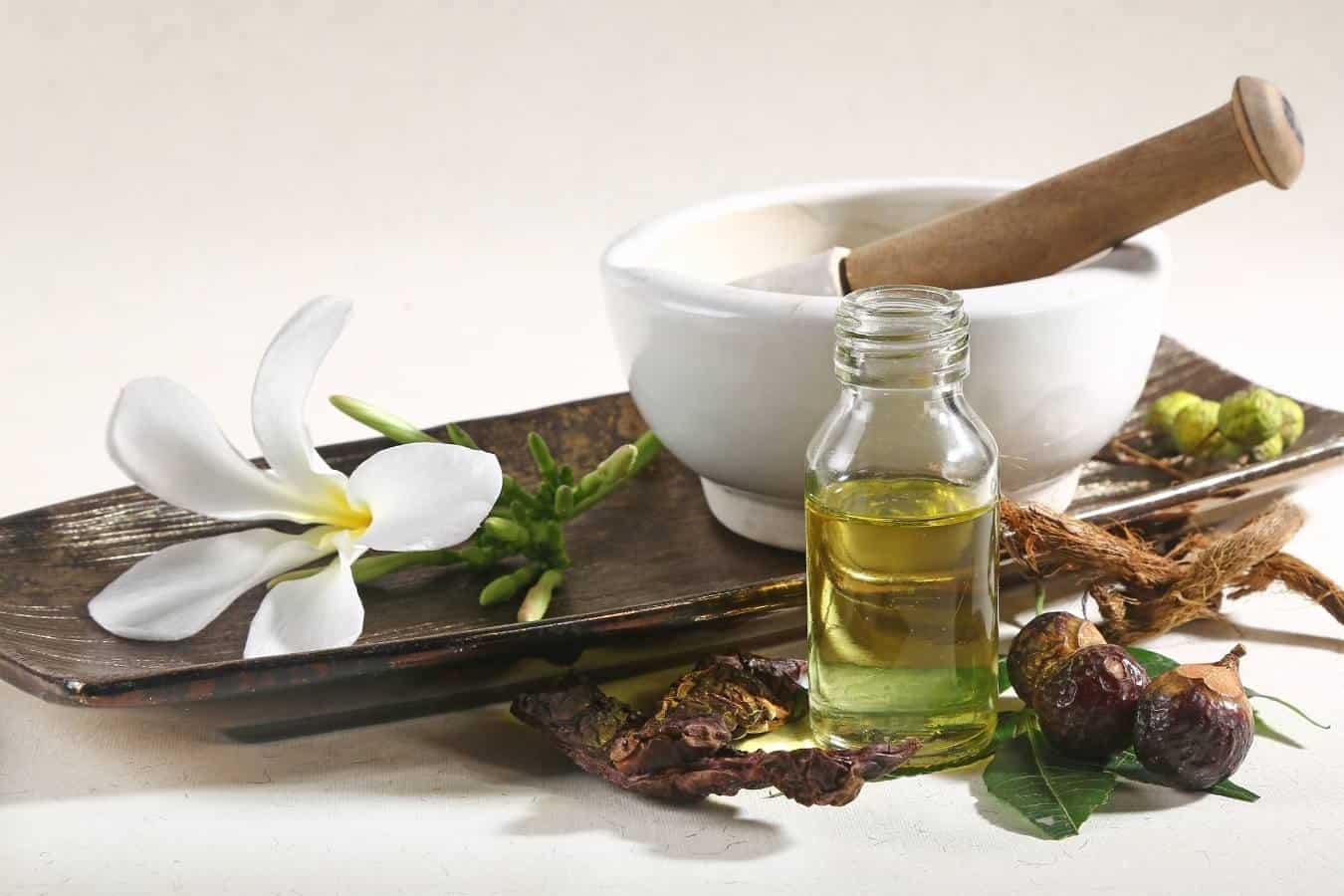Protein is the essential building block of hair and is, therefore, an important part of keeping your hair in optimal condition. This can be done with conditioners, creams, and oils. But do hair oils contain protein?

No, hair oils do not contain protein. While hair oils are an easy way to boost your hair’s hydration, they have no protein in them. Hair oils are 100% fat and therefore won’t help you if you’re in need of protein-rich haircare products.
Thankfully, there are protein and keratin treatments that can help.
That said, you should still be integrating hair oils into your regular routine, so as to maintain your hair’s hydration and health. It’s all about balance.
Why Is Protein Important For Hair?
Protein is essential for maintaining and supporting your hair’s healthy growth for a number of reasons.
Just like your muscles, organs, and skin, your hair needs vitamins, minerals, and nutrients in order to be healthy.
Protein is the essential component in delivering the amino acids that maintain, enhance, and restore your hair’s health.
Your hair’s protein levels can be impacted by your diet, the weather, any treatments it undergoes, environmental change or pollution, and your general hair care routine.
Here are a few benefits of protein for hair:
Strengthens hair
Protein also fortifies your hair and keeps it strong. In fact, your hair is overwhelmingly made up of the protein keratin.
Keratin is what gives your hair life, elasticity, shine, and bounce – essentially, it’s what makes your hair healthy. If your hair lacks keratin, it will become limp and lifeless.
Protects hair
Protein attaches to your hair’s follicle and hardens the cuticle layer. In so doing, they create a protective barrier that can help to minimize any damage to your hair.
Helps to reduce breakage or thinning
If your hair lacks protein, it is likely to grow less well and might become more prone to shedding or thinning.
Protein also minimizes breakage, frizzing, and split ends by improving your hair’s overall elasticity and strength.
Why Does Hair Need Both Moisture And Protein?

Maintaining the balance of moisture and protein in your hair is essential to maintaining its overall health, strength, and shine.
There are easy ways to ensure that you’re catering to both your hair’s moisture and protein.
If you suspect that your hair is suffering from a lack of protein, there are things you can do to help.
Ensuring that your diet is sufficiently protein-rich is an effective way of supporting the amino acids that make up your hair’s structure.
You can also use a keratin or protein treatment – more on that below.
Alternatively, integrating hair oils into your hair care routine can help to support your hair’s natural moisture levels.
If you find your hair feeling dry and becoming easily tangled or knotted, it may be in need of hydration.
Using hair oils overnight on a weekly basis can provide that moisture boost, strengthening your hair and improving your overall scalp health too.
However, if your hair is overly moisturized and lacks protein, it might become vulnerable to hygral fatigue.
Hair oils work to support and strengthen hair from the inside out – particularly if you leave them in overnight to really penetrate your strands.
Protein or keratin treatments, by contrast, will work from the outside in.
You, therefore, want to be developing a haircare routine that will both moisturize your strands and fortify them with protein.
Which Hair Oils Contain Protein?
No hair oils contain protein. On a molecular level, any hair oil is 100% fat – it contains absolutely no protein and is instead made up of three fatty acids.
And don’t be fooled – although it’s commonly reported that some oils like coconut or almond oil contain protein, they do not.
Hair oils deliver intense moisture to your hair, and they support its growth from the inside out.
Certain hair oils may also be anti-fungal or anti-bacterial, and may therefore help with the management of dandruff.
They can also make it easier to keep hair detangled and soft.
Depending on the needs of your hair, different hair oils can offer innumerate advantages.
You can add a few drops to your conditioner, massage them into your hair’s ends before blow-drying, or heat them up before working into your strands and leaving overnight.
Recommended Hair Oils
Coconut Oil
Coconut oil is deeply nourishing, and penetrates deep into your hair shaft, thereby strengthening and repairing it thanks to its natural lauric acid content.
In fact, coconut oil could even help to rebalance hair that’s protein-deficient. It’ll also keep your scalp hydrated, which might result in hair growth.
Overall, coconut oil is a real winner for hair.
Argan Oil
Argan oil is another firm favorite in the haircare community.
It contains plentiful amino acids and fatty acids, as well as vitamin E, which is essential in maintaining your hair’s overall structure and strength.
It’s intensely conditioning and can help with the management of dry, brittle, or frizzy hair.
Olive Oil
Olive oil is thick and dense, so a little goes a long way, and it can be mixed in with your regular conditioner to add a little moisture boost to your strands.
It’s full of the good fats that support and strengthen strands and can be a welcome addition to your hair in colder, dryer months. Curly girls tend to be big fans of integrating olive oil into their haircare.
Avocado Oil
Avocado oil is full of vitamin E and can help to repair and restore damaged or broken strands.
It’s also safe on color-treated hair, and it’s also a great sealant, as it’s less thick or greasy than other hair oils.
These are just four hair oils that you can integrate into your haircare – but others, like almond or jojoba oil, are equally great. It all depends on the overall texture and type of your hair.
3 Protein Treatments To Try Instead

A protein treatment will restore and reinforce your hair’s natural protein structure. The result will be hair with greater elasticity, strength, softness, bounce, and volume.
If your strands are feeling a little lifeless or limp, it may be time to give them a protein treatment.
Individuals with natural hair would also benefit from a protein treatment every four to eight weeks.
Natural hair needs more moisture as a result of its curls and coils – it can therefore be easily over-moisturized.
Using a protein treatment can help with over-moisturized hair.
Remember, it is possible to both over-moisturize and overuse protein in your hair. It’s all about maintaining a balance.
You should expect to attend a salon for keratin or protein treatment every season or every year, depending on your need. At-home protein treatments, by contrast, can be used every week or month.
Salon Keratin or Protein Treatments
Depending on which salon you attend, this may be called a Brazilian keratin treatment, but it’s all the same thing.
These treatments often contain harsh chemicals, so be aware of this prior to attending your appointment.
At-Home [Bought] Protein Treatments
There are a number of at-home protein treatments or masks that you can use.
You can also look out for hair care products – like shampoos or conditioners – that also contain protein.
Keep an eye out for ingredients including biotin, keratin, collagen, and go for products containing hydrolyzed protein (this is often hydrolyzed wheat protein) and/or amino acids (these are often derived from silk).
Evenly distribute your protein mask or treatment from your hair roots to your hair ends.
Depending on the product, you can either leave it in for a while under a covering, or wash it out, and you may need to follow with shampoo and conditioner.
At-Home Natural Protein Treatments
If you want to avoid chemicals, you can use an egg mask to boost your hair’s protein level.
Instructions
- Beat the egg until it’s frothy
- Apply to your strands
- Cover for twenty minutes.
- Rinse as normal.
You can also use a yogurt mix and apply that to your strands – you can add a whisked egg to it if you’d like to really maximize the protein. Leave for twenty minutes before rinsing.
Can I Use Oils On Protein Sensitive Hair?

First thing’s first: what is protein-sensitive hair? Protein-sensitive hair is hair that’s averse to protein.
It will become crunchy, stiff, and dry if you use any product on your hair that contains protein.
You’ll know if you have protein-sensitive hair because it will change in texture and appearance if you use a product with protein in it.
If this happens to you, you need to avoid protein-rich products.
You can, however, use oils on protein-sensitive hair.
In fact, you should be integrating them into your hair care routine as much as possible.
If your hair is protein sensitive, you can’t support it with protein or keratin treatments.
You, therefore, need to be looking after your natural protein as much as possible. Using hair oils can help to do so, preventing protein loss thanks to their high fat content.
Using oils like coconut, olive, or castor oil on protein-sensitive hair can boost your natural moisture levels, but will also protect and preserve your naturally-occurring protein levels.
Remember that leaving them on overnight will really help them to deeply penetrate into the hair shaft, intensely moisturizing and strengthening your strands.
Disclaimer: This site is not intended to provide professional or medical advice. All of the content on LovedByCurls.com is for informational purposes only. All advice should be followed at your own discretion. Ingredients may change at any time so always check the product label before using. Check our full disclaimer policy here.
